Premium Only Content

Who Let The Dogs Out Baha Men
"Who Let the Dogs Out" is a song performed by Bahamian junkanoo band Baha Men. Originally released by Anslem Douglas (titled "Doggie"), it was covered by producer Jonathan King who sang it under the name Fat Jakk and his Pack of Pets. He brought the song to the attention of his friend Steve Greenberg, who then had the Baha Men cover the song. The song, released on 26 July 2000, became the band's first and only hit in the United Kingdom and the United States, and it gained popularity after appearing in Rugrats in Paris: The Movie.
"Who Let the Dogs Out" peaked at No. 2 on the UK Singles Chart, as well as topping the charts in Australia and New Zealand, and reached the Top 40 in the United States. In Britain, it was championed by DJ John Peel and went on to be the fourth biggest-selling single of 2000, and one of the highest-selling singles of the decade not to reach No. 1. The track went on to win the Grammy for Best Dance Recording at the 2001 Grammy Awards. The song became a prominent feature of Bahamian popular culture and was the subject of a major lawsuit over copyright ownership that was settled. In 2019, an eponymous-titled documentary about the creation of the song was the surprise hit of the SXSW music festival in Austin, Texas.
"The manager of the Baha Men at that time heard a version of the song from Europe. He called [Knight's bandmate] Isaiah [Taylor] and told him it was an absolute must that Baha Men record that song, because they had the vibe to make it a huge hit. Isaiah heard the song and said there was 'no way in hell we're recording that song'. ... Management had the vision, and the Baha Men were reluctant, but the group went in and recorded it anyway."
"Who Let The Dogs Out" is a cover of the 1998 song "Doggie" (or "Dogie") by Trinidadian calypso/soca/Junkanoo artist Anslem Douglas. Douglas himself claimed that the song has nothing to do with dogs and actually has a feminist theme. In an interview that was published on his website, he said:
"It's a man-bashing song. I'll tell you why. The lyric of the song says, 'The party was nice, the party was pumpin'.' When I said the word 'party' I was being metaphorical. It really means things were going great. The 'Yippie-Yi-Yo,' that's everybody's happy, right? 'And everybody was having a ball.' Life was going great. 'Until the men start the name-callin' / And then the girls respond to the call.' So the men started calling the women 'skank' and 'skettel,' every dirty word you can think of. The men started the name-calling and then the girls respond to the call. And then a woman shouts out, 'Who let the dogs out?' And we start calling men dogs. It was really a man-bashing song."
However, Douglas has said "I never told anyone, 'Hey, I came up with the phrase.' Never did, 'cause I didn't." In late 1995 or early 1996 Patrick Stephenson and Leroy Williams, two producers who worked for Wreck Shop Radio out of Toronto, wrote a radio promo for WBLK in Buffalo, NY containing the "Who Let The Dogs Out" chorus. Douglas's brother-in-law was the host of the Toronto show and encouraged Douglas to record the song. Stephenson and Williams allowed Douglas to record the song and have said they didn't "take care of the business" of legally protecting the song. They did not know it was licensed to the Baha Men until they heard it on the radio in 2000.
Complicating matters further, 20 Fingers and Gillette released "You're a Dog" in 1995 with a very similar chorus where they sing, "Who let the dogs loose?" Stephenson and Williams claim to have never heard the song, and 20 Fingers has made no legal claim to "Who Let the Dogs Out?". Even earlier, Brett Hammock and Joe Gonzalez also recorded a song called "Who Let the Dogs Out?” in 1992 as rap duo Miami Boom Productions out of Jacksonville, Florida. It was not widely released, and they were also surprised to hear "Who Let The Dogs Out?" on the radio in 2000. Miami Boom states their version was inspired by "Da Mad Scientist" by Bass Patrol, in which there is a sample of 1987's "Pump Up The Party" by songwriter and producer Stevie B (released under the pseudonym Hassan) that includes the lyrics, "Who's rocking this dog's house?"
John Michael Davis from Dowagiac, Michigan contacted 99% Invisible contributor Ben Sisto. He said his hometown is sometimes referred to as "the dog patch", and the crowd at the Dowagiac Chieftains high school football games frequently chanted "Oooh, let the dogs out!” during their state championship run in 1990. During this time Joe Gonzalez of Miami Boom lived in Michigan, but he states he has no memory of hearing this chant. Sisto states that variations of the "Who let the dogs out?” chant are evident in regional high school sports, discovering a chant almost exactly like the chorus of the Baha Men song as far back as 1986 at Austin Reagan High School. Sisto surmised:
"I don't think anybody in this story is lying... You can hear something and it's just in there subconsciously until it's just ready to come out. One of the big myths we tell ourselves about art is that it's made by individuals and that myth is sort of what the art market is propped up on... It's just about the very nature of art and life and I think that all these ideas apply to every piece of creative work ever made."
In the original music video for the song, a kennel security guard is watching a game show called Who Wants to Be a Zillionaire? on TV, in which a contestant is given the title question. Dogs escape from the kennel as the emergency alarm sounds. The guard responds by yelling the title song into his walkie-talkie. Throughout the video, the dogs chase people while the band Baha Men are performing. At the end of the video, the dogs return to the kennel, pleasing the security guard.
A version also exists using the "Barking Mad Mix" of the song. This was the main video in Australia, as it was serviced to radio stations instead of the original version. A new version of the video also debuted at the end of the VHS release of Rugrats in Paris: The Movie, in which Rugrats clips are seen.
The first use of the song at an American sporting event was at Mississippi State University. The university's mascot is the Bulldog, and the university school first played the song during football games in the fall of 1998 using the version sung by Chuck Smooth. It was accompanied by the crowd singing along and the team performing a dance on the field called "The Dawg Pound Rock" just before a kickoff. Later the Southeastern Conference ruled that they could not perform the dance on the field, so the team moved it to the sidelines. Several other teams followed suit, and the song quickly became a national phenomenon.
In June 2000, Gregg Greene, then Director of Promotions for the Seattle Mariners, was the first to play the Baha Men's version of "Who Let the Dogs Out" at a Major League Baseball game. He debuted the tune as a joke for the team's backup catcher, Joe Oliver. Two days later, shortstop Alex Rodriguez requested the song be used as his walk-up music, and it quickly became the Mariners team anthem. The Baha Men performed at Safeco Field during a Mariners game in September 2000. The New York Mets, however, have claimed that they were the first MLB team to adopt the song, to which ESPN humorously commented "This is a little like scientists arguing over who discovered a deadly virus". The Baha Men recorded a version of the song that changed the chorus to "Who let the Mets out?" and all the lyrics to reflect the team and its players, which was played at Shea Stadium throughout the Mets' 2000 postseason run, including a live performance on the Shea Stadium field before Game 4 of the 2000 World Series against the New York Yankees. The song was written by David Brody of Z100 New York and recorded by the Baha Men initially for Z100. Brody then gave the song to the Mets to play at Shea.
In the United Kingdom, the song was quickly appropriated by Liverpool supporters under then-manager Gérard Houllier. Regular chants of 'Hou led the reds out' by Liverpool fans (a reference to Liverpool's cup treble in 2001) were followed soon after by opposition fans' chants of 'Hou had a heart attack' (a reference to Houllier's illness in October 2001).
-
 10:02
10:02
Psychological operations
7 hours agoBlood On The Bluegrass No Such Thing Somethin' In The Water Legendary Shack Shakers
82 -
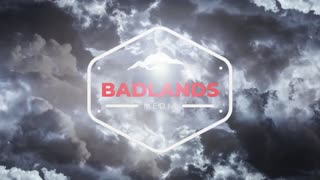 1:54:32
1:54:32
Badlands Media
8 hours agoBadlands Media Special Coverage - FBI Press Conference on Charlie Kirk's Assassination
131K19 -
 1:06:19
1:06:19
BonginoReport
10 hours agoManhunt Underway for Charlie Kirk’s Assassin - Nightly Scroll w/ Hayley Caronia (Ep.132)
289K228 -
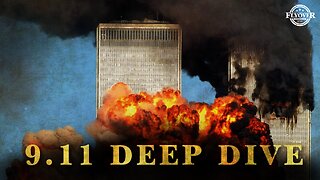 1:11:42
1:11:42
Flyover Conservatives
17 hours agoStructural Architect Destroys 9.11 Narrative... What Really Happened? - Richard Gage AIA | FOC Show
84.4K13 -
 1:51:14
1:51:14
Precision Rifle Network
13 hours agoS5E1 Guns & Grub - Charlie Kirk's "sniper"
48K14 -
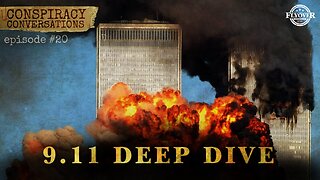 13:09:12
13:09:12
LFA TV
20 hours agoLFA TV ALL DAY STREAM - THURSDAY 9/11/25
410K93 -
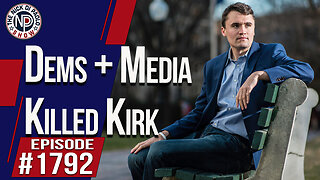 1:01:56
1:01:56
The Nick DiPaolo Show Channel
10 hours agoDems + Media Killed Kirk | The Nick Di Paolo Show #1792
124K119 -
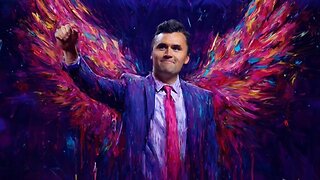 1:35:10
1:35:10
LIVE WITH CHRIS'WORLD
12 hours agoLIVE WITH CHRIS’WORLD - WE ARE CHARLIE KIRK! Remembering a Legend
37.8K5 -
 50:24
50:24
Donald Trump Jr.
11 hours agoFor Charlie
399K487 -
 2:05:22
2:05:22
Quite Frankly
13 hours agoTipping Point USA? & Open Lines | 9/11/25
78.8K8